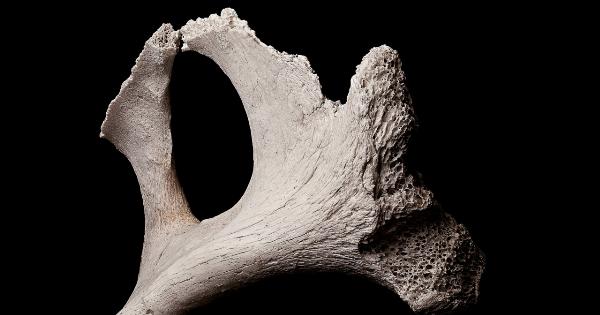Osteoporosis is a progressive bone disease that leads to an increased risk of fractures. Aging and loss of bone mass are the main risk factors for osteoporosis. Vitamin E has been identified as a potential nutrient that can help prevent osteoporosis.
This article discusses the role of vitamin E in osteoporosis prevention.
What is Vitamin E?
Vitamin E is a fat-soluble vitamin that acts as an antioxidant in the body. It helps protect cells from damage caused by free radicals, which are harmful molecules produced in the body as a result of metabolism and environmental exposure to pollutants.
Vitamin E is important for maintaining healthy skin, hair, and eyes. It also plays a role in immune function and in the formation of red blood cells.
How Does Vitamin E Help Prevent Osteoporosis?
Vitamin E may help prevent osteoporosis by several mechanisms:.
: 1. Anti-inflammatory effects
Chronic low-grade inflammation is known to contribute to the development of osteoporosis. Vitamin E has been shown to have anti-inflammatory effects that can help reduce the risk of bone loss.
Studies have shown that vitamin E can reduce the levels of pro-inflammatory cytokines that are associated with bone loss.
: 2. Antioxidant effects
Vitamin E is a potent antioxidant that can help protect bone cells from damage caused by free radicals. Free radicals can cause oxidative stress, which can lead to bone loss.
Vitamin E can help neutralize free radicals and protect bone cells from oxidative stress.
: 3. Hormone-like effects
Vitamin E has been shown to have hormone-like effects in the body. It can help regulate the production of hormones that are involved in bone metabolism, such as estrogen and testosterone.
These hormones are important for maintaining bone density and preventing bone loss.
: 4. Modulation of bone resorption
Vitamin E can also help regulate the activity of cells that break down bone tissue, known as osteoclasts. Studies have shown that vitamin E can inhibit the activity of osteoclasts, which can help prevent bone loss.
Sources of Vitamin E
Vitamin E is found in a variety of foods, including:.
- Almonds and other nuts
- Seeds, such as sunflower seeds
- Vegetable oils, such as sunflower oil, safflower oil, and wheat germ oil
- Leafy green vegetables, such as spinach and kale
- Fruit, such as mango, avocado, and kiwi
The recommended daily intake of vitamin E for adults is 15 milligrams (mg) per day.
Conclusion
Vitamin E is a potent antioxidant that can help prevent osteoporosis by reducing inflammation, neutralizing free radicals, regulating hormone production, and inhibiting the activity of osteoclasts.
Good dietary sources of vitamin E include almonds, sunflower seeds, vegetable oils, and leafy green vegetables. Incorporating these foods into your diet can help ensure that you are getting enough vitamin E to support bone health.































